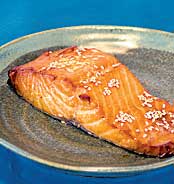 Dr. Philip Calder from the Institute of Human Nutrition at the University of Southampton, United Kingdom has written a scholarly review on this relationship.
Dr. Philip Calder from the Institute of Human Nutrition at the University of Southampton, United Kingdom has written a scholarly review on this relationship.
Here are the key points.
- Experimental work shows that omega-3 polyunsaturated fatty acids (PUFAs) work through several mechanisms to decrease inflammation.
- Once eaten, alpha-linolenic acid (ALA) is converted to eicosapentaenoic acid (EPA), and docosahexaenoic acid (DHA), which are most readily used by the body.
- However, the relative anti-inflammatory potencies of EPA and DHA aren’t known, and comparisons between them should be made.
- Evidence of the clinical effectiveness of omega-3 PUFAs is strong in some settings (eg, in rheumatoid arthritis) but weak in others (eg, in inflammatory bowel diseases and asthma).
- Better-designed, larger trials are needed to assess their value in treating patients.
- Dr. Calder believes that the anti-inflammatory action of PUFAs might be improved if the intake of omega-6 PUFAs, especially arachidonic acid, is decreased.
Hat tip to Dr. Peter Stanton for the lead.
6/14/07 17:19 JR